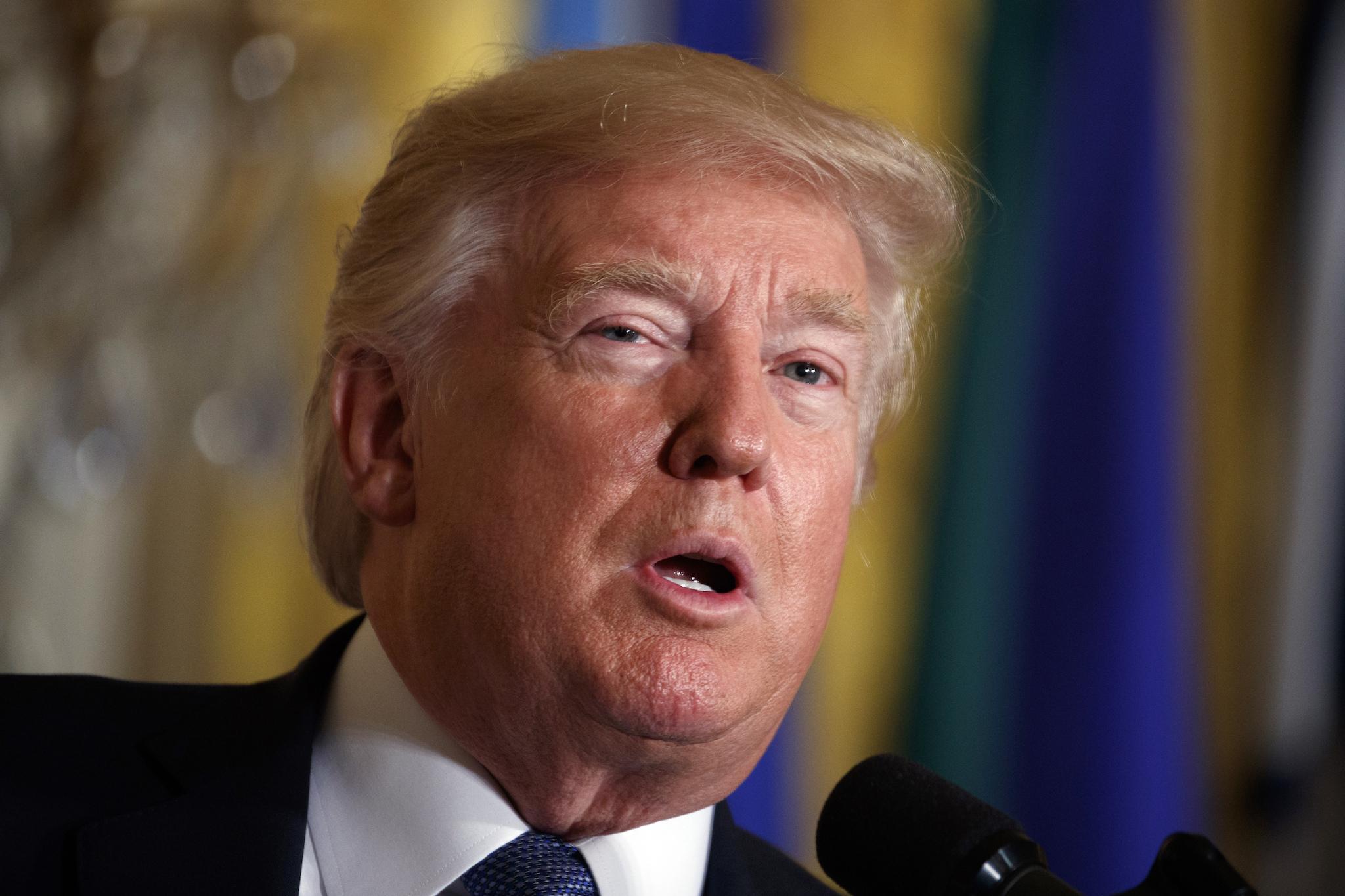Trump suggests he has no chance of passing Republican agenda with filibuster in place
It is unclear whether getting rid of the filibuster would actually help Republicans

Your support helps us to tell the story
From reproductive rights to climate change to Big Tech, The Independent is on the ground when the story is developing. Whether it's investigating the financials of Elon Musk's pro-Trump PAC or producing our latest documentary, 'The A Word', which shines a light on the American women fighting for reproductive rights, we know how important it is to parse out the facts from the messaging.
At such a critical moment in US history, we need reporters on the ground. Your donation allows us to keep sending journalists to speak to both sides of the story.
The Independent is trusted by Americans across the entire political spectrum. And unlike many other quality news outlets, we choose not to lock Americans out of our reporting and analysis with paywalls. We believe quality journalism should be available to everyone, paid for by those who can afford it.
Your support makes all the difference.President Donald Trump has again called for the Senate’s Republican leadership to end the filibuster, saying it is “a death sentence” for the Republican agenda.
“It’s a disaster, OK. It’s a disaster for the Republicans,” Mr Trump said in an interview with former Arkansas Governor Mike Huckabee, a Republican and the father of White House Press Secretary Sarah Huckabee Sanders.
“They have to get rid of it. If they don’t get rid of it, it’s just a death sentence,” Mr Trump said.
The filibuster rule requires that most legislation receive 60 votes to end debate, or invoke cloture.
Republicans currently hold a 52-seat majority in the 100-member Senate.
Requiring 60 votes to stop debate is a unique characteristic of the Senate and has the effect of requiring some Republicans to work with Democrats to push bills forward.
Mr Trump has repeatedly called on the Senate to scrap the filibuster for legislation, but Senate Majority Leader Mitch McConnell has so far ignored the President’s requests.
While Mr Trump appears to believe that getting rid of the rule is the key to securing legislative victories, it is unclear whether doing so would actually help Republicans.
Mr McConnell on multiple occasions tried to pass a healthcare bill using a process known as reconciliation – meaning he only needed 51 ‘yea’ votes on the measure instead of the normal 60.
But the majority leader repeatedly failed, unable to convince at least 50 members of his party to support the legislation that would have dismantled Obamacare, otherwise known as the Affordable Care Act.
In the event of a 50-50 tie, Vice President Mike Pence would have cast the deciding vote.
Republicans are attempting to reconciliation again – this time to pass a bill that would rewrite the US tax code, a key part of Mr Trump’s legislative agenda.
But the issue already appears to be dividing the party, with multiple Republicans expressing concerns about the proposed tax plan.
Mr McConnell can only afford two defections from his own party and still be able to pass a tax bill.
Republicans have still not secured a major legislative victory since Mr Trump took office in January, despite having control over both the House and the Senate.
Subscribe to Independent Premium to bookmark this article
Want to bookmark your favourite articles and stories to read or reference later? Start your Independent Premium subscription today.
Join our commenting forum
Join thought-provoking conversations, follow other Independent readers and see their replies
Comments